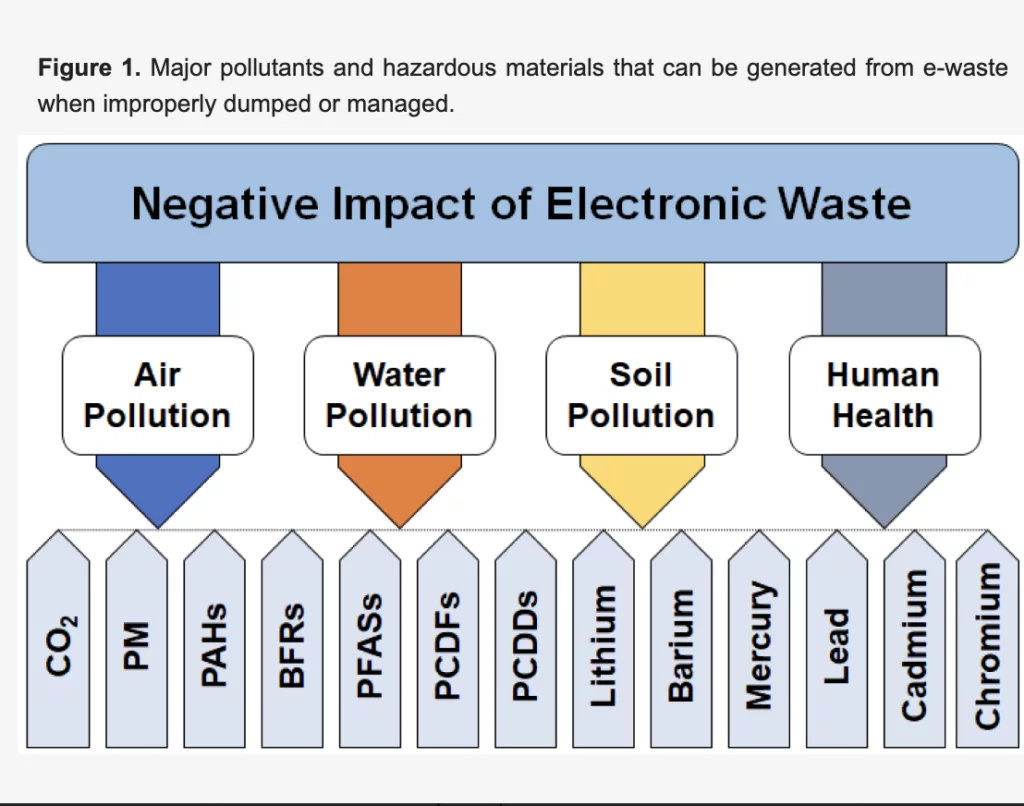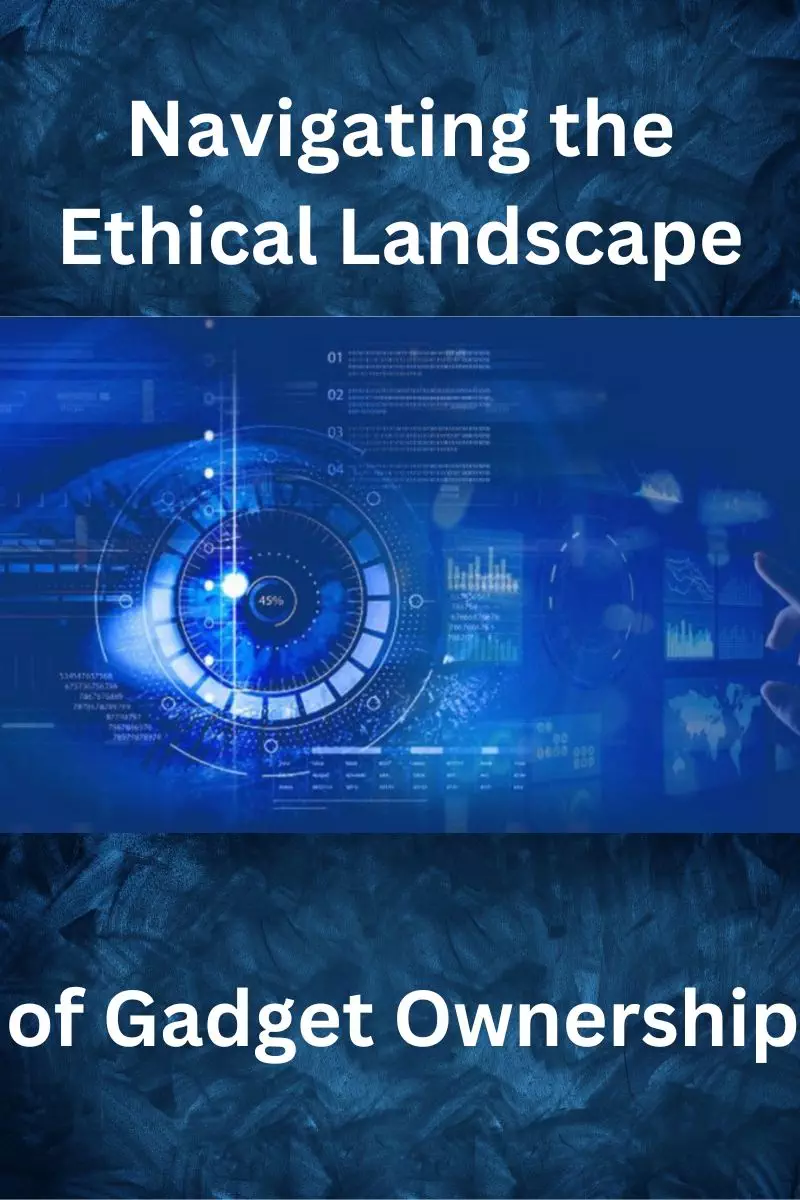Navigating the Ethical Landscape of Gadget Ownership: Fostering Responsible Technology Use in a Digital World
Introduction:
In an era dominated by technology, the proliferation of gadgets has revolutionised the way we interact with the world. From smartphones that fit in the palm of our hands to smart home devices seamlessly integrated into our daily lives, these gadgets offer unparalleled convenience and connectivity.
However, beneath the surface of innovation lies a complex web of ethical considerations surrounding gadget ownership. In this blog post, we will explore the multifaceted dimensions of the ethics of gadget ownership, emphasising the imperative of responsible technology use in our interconnected digital world.
If ethics are your thing check my post on driverless cars here
I suppose at the end of the day you can ask yourself ” am I going to make a difference?” or “am I really arsed?” only you know where you stand on these issues, read on and see if you do care!!
A consequence of “gadget addiction’ can result in wasted tech, could this you? check my post on it here
Environmental Impact:
A. Manufacturing and Resource Extraction:
The lifecycle of gadgets begins with manufacturing, a process often fraught with environmental concerns. The production of electronic devices relies heavily on the extraction of rare minerals, contributing to habitat destruction, pollution, and human rights abuses in mining regions. Responsible gadget ownership entails understanding the environmental footprint of our devices and supporting companies that prioritize sustainable and ethical sourcing of materials.
B. Electronic Waste and Recycling:

As technology advances at an unprecedented pace, the turnover of gadgets has accelerated, leading to a surge in electronic waste. E-waste poses a significant threat to the environment due to toxic components and the difficulty of proper disposal. Responsible users should consider the environmental impact of their gadgets throughout their lifecycle, actively participate in e-waste recycling programs, and support initiatives that promote sustainable disposal practices.
Check these facts on how much tech a student could use in his/her lifetime here
And even as i write this (in the UK) there’s an advert on telly promoting used or refurbished tech, so you could always try something like that, i’d just make sure you still get a decent warranty period as we all know batteries have a life cycle. It would suck to buy last years tech for half price but then you iPhone 13 only lasts 1/2 a day before its flat if you get me.
Consumerism and Planned Obsolescence:
A. The Culture of Consumerism:
The relentless push for newer, faster, and sleeker gadgets has given rise to a culture of consumerism in the tech industry. Companies strategically market frequent upgrades, enticing users to replace their devices regularly. This not only perpetuates environmental issues but also raises ethical concerns about economic exploitation. Responsible gadget ownership involves critically evaluating the necessity of constant upgrades, supporting companies committed to longevity, and advocating for a shift away from disposable consumer electronics.
B. Planned Obsolescence:

At the heart of consumerism lies planned obsolescence, a practice where gadgets are intentionally designed with a limited lifespan. Do we believe that updating a 3 year old phone with the newest O.S. actually makes it perform slower and generally worse?
This strategy ensures a consistent demand for new products and discourages repairability. Responsible users should actively resist planned obsolescence by choosing products that prioritise durability, repairability, and longevity. Supporting initiatives that promote the right to repair and holding companies accountable for sustainable design practices are integral to ethical gadget ownership.
Digital Privacy and Security:

A. Data Protection and Privacy Concerns:
As gadgets become repositories of personal information, digital privacy and security emerge as critical ethical considerations. Data breaches, identity theft, and unauthorised surveillance are ever-present risks. Responsible gadget ownership involves understanding and configuring privacy settings, using robust security measures, and supporting companies that prioritise user data protection.
But as we all know, nothing is fully secure but we can do as much as we can to prevent being an easy target. Check my other post securing your tech here
B. Ethical Practices of Tech Companies:
Users must be aware of the ethical practices of the companies behind their gadgets. This includes considerations of data handling, transparency, and commitment to user privacy. Advocating for stronger privacy regulations, holding companies accountable for breaches, and supporting ethical alternatives contribute to the broader ethical landscape of gadget ownership.
Social Impact and Inclusivity:
A. Bridging the Digital Divide:
The benefits of technology should be accessible to all, yet the digital divide remains a stark reality. Certain demographics, often marginalized, lack access to essential technologies, perpetuating social inequalities. Responsible gadget ownership involves advocating for digital inclusivity, supporting initiatives that bridge the digital divide, and ensuring that technological advancements prioritise the needs of all members of society.
But we all know multi=nationals don’t consider this as a rule, I mean you have to be of a certain income bracket to own a mac book pro for instance, but I’m sure you know what I mean
B. Labor Practices and Ethical Sourcing:
The social impact of gadget ownership extends to the manufacturing process, where labor practices and ethical sourcing of materials come into play. Responsible users should consider the working conditions of those involved in gadget production, supporting companies that uphold fair labor practices and ethical sourcing of materials.
Mindful Usage and Digital Well-being:
A. Digital Addiction and Screen Time:
The omnipresence of gadgets has given rise to concerns about digital addiction and excessive screen time, particularly among children and adolescents. Responsible gadget ownership involves setting boundaries for screen time, promoting digital well-being, and fostering a healthy balance between online and offline activities.
ISP’s in the UK are know giving you as a home network administrator the option the kill the WiFi on say your kids Ipad or PS5 so they are then “forced to switch off’ and I’m sure we’ve all looked at our screen time report on a Monday morning !!
B. Nurturing Healthy Relationships with Technology:
As responsible users, we must recognise the impact of gadgets on our mental health and overall well-being. This involves cultivating mindfulness in our gadget usage, understanding the signs of digital addiction, and actively seeking ways to balance the benefits of technology with the need for real-world experiences.
Ethical Considerations in Artificial Intelligence:
A. Autonomy, Bias, and Accountability:
The integration of artificial intelligence (AI) into gadgets introduces ethical considerations related to autonomy, bias, and accountability. Responsible gadget ownership entails understanding the implications of AI, advocating for transparency in algorithmic decision-making, and supporting the development of AI technologies that prioritize fairness, inclusivity, and accountability.
B. Ethical Development and Deployment of AI:
Users should be proactive in supporting companies that adhere to ethical guidelines in the development and deployment of AI. This includes considerations of bias mitigation, explainability in algorithms, and accountability for AI-driven decisions that impact individuals and society at large.
Conclusion:
In the ever-evolving landscape of gadget ownership, navigating the ethical terrain is both a challenge and an imperative. Responsible technology use involves a holistic approach, encompassing environmental considerations, awareness of social impact, vigilance regarding digital privacy, and a commitment to fostering digital well-being. As stewards of the digital realm, users wield significant influence in shaping the ethical practices of the tech industry.
By adopting a mindset of responsibility in gadget ownership, we can contribute to a more sustainable, equitable, and ethically grounded digital world that benefits present and future generations if you really care!






Pingback: Why Are Gadgets So Addictive in 2024?
Pingback: The Best Cool Gadgets of 2024 - toptech7.com